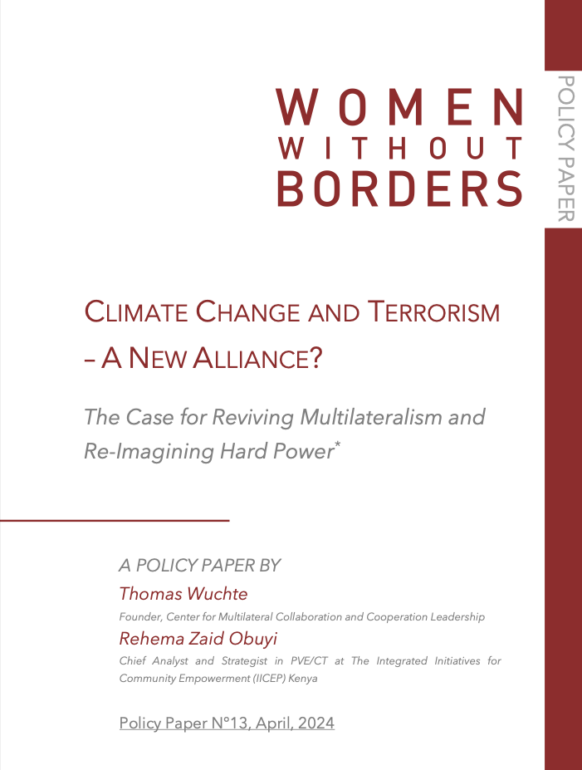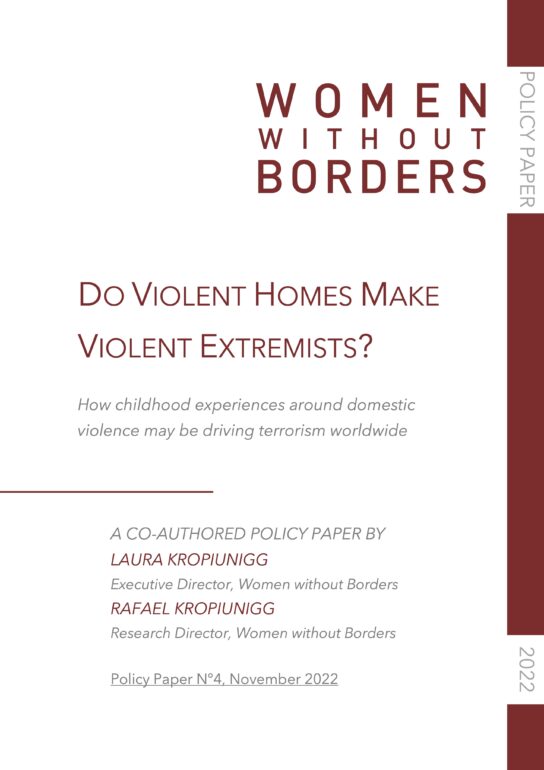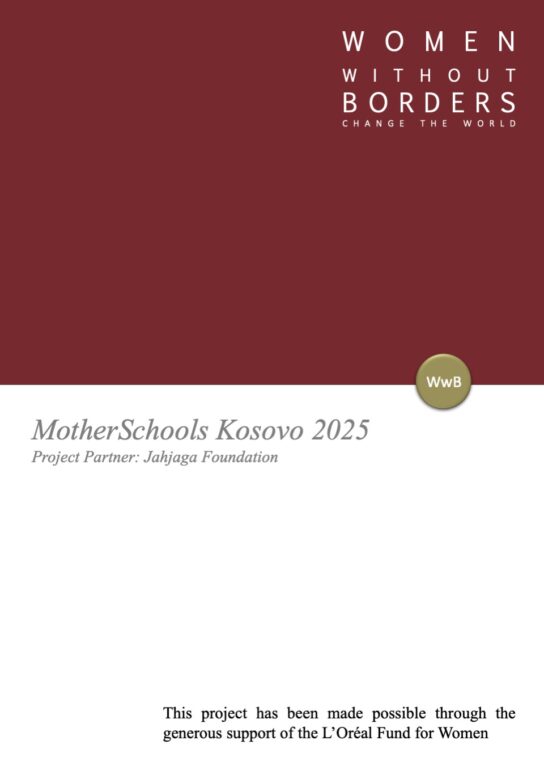With the world at an inflection point in the global race to find solutions to the mounting climate change crisis, security experts Thomas Wuchte and Rehema Zaid Obuyi apply an integrated approach that points to an apparent neglect of a climate change focus in conjunction with broader dynamics, including geopolitical conflict, gender-based violence, and disaffected youth vulnerable to violent extremism. In Policy Paper N°13, the authors argue that the interplay between terrorism, organised crime, and climate change—and specifically how it appears to be fuelling violent extremist engagement—warrants our full attention.
A renewed sense of optimism in the fight against climate change following the COVID-19 lockdown era turned out to be short-lived. Just as efforts in addressing the climate crisis fell short of the mark, so did alleviating global poverty, solving water shortages, and coordinating collective conservation ambitions. In hindsight, the pandemic ended up exacerbating a myriad of issues, with radicalisation among them. Prolonged periods of isolation at home, for instance, made individuals more susceptible to disinformation rabbit holes.
Despite the gloomy outlook, successful multilateral meetings have the potential to build consensus. Tackling climate change requires a collective decision to embark on security work with unexpected partners, and to consider restructuring the resource sharing burden—namely by tapping into hard security funds to support work on the underlying conditions leading to a rise in violent extremism. The recent resurgence of populist ideas and policies have hampered political will to redirect a portion of hard power resources to addressing the root causes of violent extremism. Adding to this, community capacity building, educational programmes, and youth empowerment initiatives, for example, tend already to be viewed overwhelmingly as separate to traditional security capacity building. In our view, the dual approach should strongly complement each other to effectively mitigate risk factors. Terrorism remains one of the most lethal transnational threats to peace and security; hence, the need for a unified effort cannot be underestimated.
Multilateralism should address the interrelated nature of both hard and soft power on the one hand, and various crises on the other hand. It must go beyond focusing merely on traditional threats by linking these to non-traditional security threats (e.g. climate, water, and natural habitat). These are inter-connected and pressing peace and security concerns, the world over. Non-traditional and traditional threats together act as a Molotov cocktail. While traditional security concerns have given rise to a large counterterrorism architecture in the wake of the ‘War on Terror’, non-traditional security concerns remain comparatively underexposed and unaddressed.
Read the full policy paper here.




